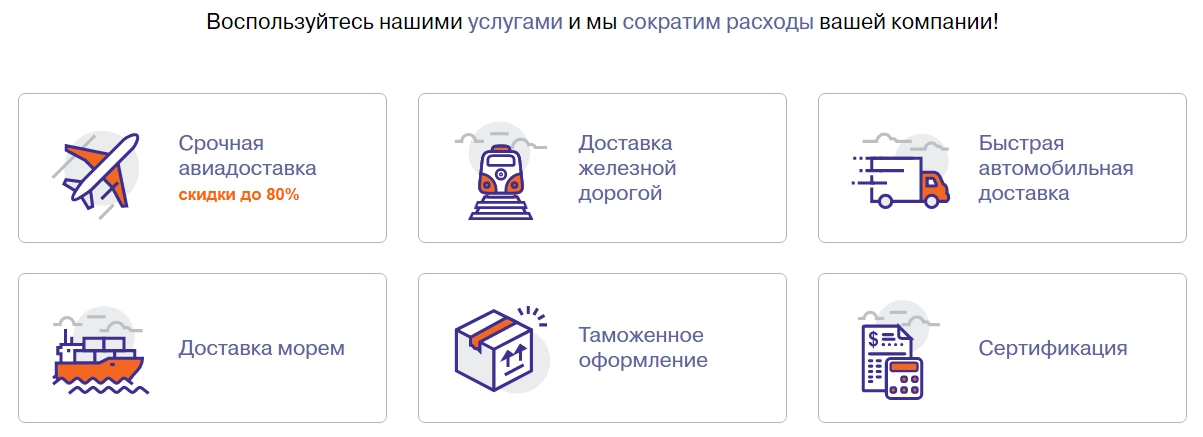How Automated Technologies are Reshaping Freight Logistics
How Automated Technologies are Reshaping Freight Logistics
Blog Article
The logistics industry, particularly cargo transport, is witnessing a groundbreaking evolution, fueled by the relentless evolution of automated technologies. As businesses vie for efficiency and rapidity in transportation approaches, robotization positions itself at the leading edge of this innovation, reshaping how products are transported across the world. From self-driving vehicles to intelligent tracking technologies, the evolution of this industry is evident, providing substantial enhancements in speed, reliability, and cost-effectiveness.
Redefining Optimization with Mechanization
At the center of this digital surge lies the integration of mechanization in freight transport systems. Old-fashioned approaches often struggled under the weight of lagging processes and manual error. However, contemporary self-operating technologies offer intelligent methods that optimize operations.
One major improvement is in the realm of aviation-based shipping, where automation facilitates in managing multi-layered supply chain tasks that entail route mapping and air flow regulation. This not only enhances the workflow but also improves safety by minimizing potential human misjudgments.
Improved surveillance features are another boon. Modern technology facilitates for real-time observation of shipments, which provides companies and end-users informed about the location of their goods round-the-clock. This transparency is crucial in cultivating confidence and reliability in freight distribution services.
Minimizing Costs and Optimizing Customs
AI-powered systems extends into the complex workflows of customs processing, typically a bottleneck for freight movement due to its complex regulations and likely delays.
Advanced self-operating systems integrated with data-driven insights technologies can rapidly evaluate massive datasets of documentation and guarantee alignment with regulations quicker than in the past. This reduction in time lowers on administrative expenditures dramatically, highlighting a tangible economic gain that organizations can leverage.
Revolutionizing Logistics with Advanced Analytics
Additionally, the adoption of predictive modeling reinvents the approach toward logistics and border clearance. By examining past information and up-to-date market shifts, machine-driven systems forecast issues and streamline operations to be more efficient and optimized.
Companies monitoring live information can formulate well-calculated choices that automatically mitigate challenges related to import-export processing lags.
Eco-Friendly Impact
Self-operating systems also enhance significantly to ecological responsibility in freight logistics. More precise and efficient route planning minimizes avoidable energy usage and decreases greenhouse gas.
Automated fleet systems are steadily adaptable with renewable fuels and electric propulsion, integrating freight transport operations with widespread green goals.
Enhancing End-User Experience
The AI-driven technology optimizes not just supply chain efficiency but also customer loyalty. The capability to monitor orders in instantaneously, experience minimized setbacks, and enjoy minimized expenses transforms end-user interaction positively.
Rapid, clear, and optimized logistics frameworks are more prone to build customer retention and ongoing business, showing that modern advancements is essential in contemporary freight delivery operations.
Additionally, as automated tools manage repetitive duties more efficiently, companies can allocate workforce resources to departments requiring strategic insight and decision-making, consequently improving customer quality holistically.
Facing Ahead: The Automated Future
The transformative effect of self-operating technology in cargo shipping guarantees an exciting future for supply chain. As organizations continue to leverage these solutions, they enhance their market position by delivering faster, more secure, and more affordable shipping options.
Eco-conscious innovations further broaden the appeal of AI-powered frameworks, integrating industry methods with green strategies.
A New Era in Freight Transport
In principle, the integration of automated technologies in freight logistics unleashes a myriad of possibilities focused on transforming shipping not only more efficient but also more safe and less financially burdensome.
The calculated use of advanced analytics in optimizing regulatory formalities further reinforces the efficiency of automated technologies in revolutionizing conventional cargo transport industries.
Self-Operating Systems: The Future of Freight Shipping
Freight shipping is stepping decisively into a new era dictated by automation—a proof to society’s continuous quest of innovation.
With ongoing developments, the capacity to reshape international commerce structures remains, indicating an optimistic trajectory towards an integrated and streamlined future in cargo delivery.
More info about dostavka gruzov check out our new internet page: look at this.